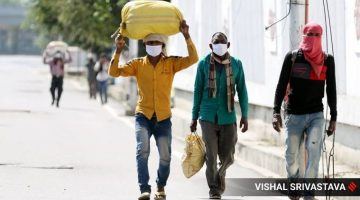 Amartya Sen in The Indian Express:
Amartya Sen in The Indian Express:
Democracy gives very strong incentives to the government to work hard to prevent famines. The government has to respond promptly to people’s needs because of a combination of public discussion and elections. However, elections alone could not do it. Indeed, democracy is never understandable only as a system of free elections, which are intermittent, often with a big gap between one and the next, and which can be swayed by the excitement that the immediate political context generates. For example, Prime Minister Margaret Thatcher, who was trailing badly in the polls before the Falklands War in 1982, got a huge bump from the war (as ruling governments often do) and comfortably won the general elections that followed, in 1983.
Also general elections in the parliamentary system are primarily about getting a majority of seats in the lower house of parliament. There is no formal rule about the interests or rights of minorities in the voting system. Given that, if all people were to vote according to their own personal interests, an election would not have been a strong saviour of famine victims, since only a small minority of people actually starve in any famine. However, a free press and open public discussion makes the distress and dangers faced by the vulnerable poor substantially known and understood by the public at large, destabilising the standing of a government that allows such a calamity to happen. Of course, the government itself, since it may also be run by people and parties capable of human sympathy and understanding, may be directly influenced by what they learn from the information and analyses emerging from public discussion.
More here.
